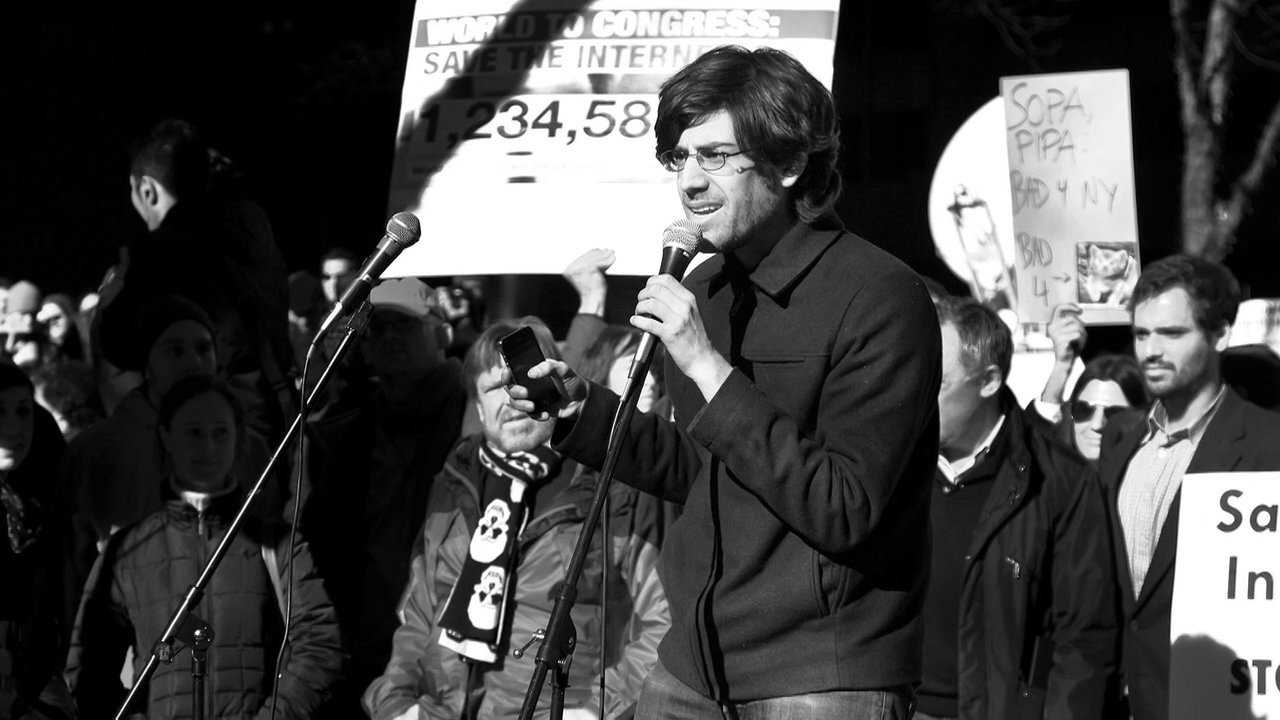The BitTorrent Interview: Documentary Filmmaker Brian Knappenberger on Internet Activism, from Anonymous to Aaron Swartz

As the F.C.C. weighs its decision on Net Neutrality, the award-winning director talks to us about the evolution of digital advocacy, and capturing a generation’s grassroots movement on film.
From the Internet’s faceless dissidents, to it’s own boy: Brian Knappenberger has spent the last five years documenting the shifting landscape of digital activism. His 2012 film We Are Legion traces the rise of Anonymous, and the war for the open web. His 2014 film The Internet’s Own Boy investigates that battle’s most profound casualty: the life and death of Aaron Swartz. In the days leading up to the F.C.C.’s decision on Net Neutrality, we spoke with Knappenberger about the future of hactivism, and our right to be adversarial.
BitTorrent: We Are Legion and The Internet’s Own Boy trace the evolution of Internet culture. What drew you to these stories?
Brian Knappenberger: This is the moment. This is what’s happening right now. Within the past fifteen, twenty years, there’s been this explosion in how we communicate. Every part of our life has an online component. But no one really knows how it works; how fragile it is, how insecure.
At the same time, over the course of the past fifteen years, we’ve been waging the “War on Terror”. This has granted huge powers to the government; to the military. There’s been an effort to curb, and a willingness to step back on, civil liberties. To trade these in to feel safer.
“We’re at a crossroads. We have to ask ourselves: What kind of Internet do we want? How do we program this? How do we use the tools that we (now) have at our fingertips, or a click away, to create opportunity, and protect certain freedoms?”
We have an obligation to the Internet we’re building. Let’s protect innovation. Let’s protect freedom.
BitTorrent: These two films represent a dialogue on the state of the Internet; it’s two sides. As profoundly human, a face and a life that’s seared into our memories. As something anonymous, unknowable, and entirely faceless. Was this about bringing people into the very human, hard reality of our networked world? Breaking the Bubble around the Internet, or Silicon Valley?
Knappenberger: People have said I make hacker films. That’s not true. I’ve been making films about people who care about the Internet. And the Internet is not just hackers. It’s us. This is where we live.
The people who identify as Anonymous are fighting for the same thing as Aaron Swartz; fighting for many of the issues that impact all of us. The tactics are different, the approach is different, but the frustration is the same. Aaron was frustrated with the current system, but he wasn’t ready to give up on it. He was looking for solutions that worked for people; for the Internet as a whole.
“I think we have to look for innovative ways to hack the system. We have to find a way to make the system work.”
Anybody who’s really thinking about enacting change comes up against a basic question. This is the Henry David Thoreau quote that opens The Internet’s Own Boy. Unjust laws exist. Should we obey them, try to amend them, or transgress them? You can choose what side of the line you come down on. But you have to act. You have to participate.
BitTorrent: How has Internet activism and advocacy changed over the course of the past few years?
Knappenberger: There’s been a number of attacks on the hactivist community. There’s more fear. There’s been more pushback from law enforcement. There’s been an effort to shut people up, to bring control over the Internet back to institutions.
The most critical thing is that now the broader public is involved. There’s this huge community of people around the world who are passionate about protecting civil rights online. Look at what’s happening around Title II and the reclassification of broadband. 300,000 people commented on the FCC’s website. Then, 3,000,000 did. Then Obama comes out to support it, unconditionally. And then Wheeler does, too. A year ago we didn’t think this could happen.
This just shows you what happens when people show up. When people put heat on an issue. This is the power of participation. This is creating change within the system.
BitTorrent: Was that — getting people aware of the issue, getting people to act — your goal for these films?
Knappenberger: I was just really compelled by the story. By Anonymous, by Aaron, by what they’re doing. As a filmmaker, your goal is to introduce the world to these issues. To shed light on the lives and stories that are behind, that illustrate, these broader concepts in culture; to use narrative to bring people into a place or an idea that they’d never encountered before.
BitTorrent: What do you see as the role of documentary film?
Knappenberger: At their best, they tell a story that has larger significance and resonance. It’s quite a thing that we can take in a film, and enjoy it, and be totally transported somewhere else.
“As a filmmaker, and as a journalist, documentary is the right to be adversarial.”
To afflict the comfortable, and to comfort the afflicted. It puts you in a position where you can speak out and speak truth to these institutions, and broaden access to information. Democracy only works with a well-informed public.
BitTorrent: What do you see as some of the challenges or opportunities facing independent film?
Knappenberger: You’re really on your own. The challenge is getting something funded, and getting it out there. But that stuff is getting easier. In some cases, too, there are people who want to shut you up. Film is supposed to stand up to this. My approach is to be adversarial, to keep challenging.
“We’re all looking for a system that allows us to make enough money to keep making films. Artists should get paid for their work. It takes years to make a documentary. It takes funding to do great journalism. And these things are critical to our society. We need to put them front and center. We also need to figure out technical ways to make this happen.”
But I’m optimistic about it. I worked for Frontline and National Geographic. I’ve had films in festivals. And in the “good old days”, the deals you were getting weren’t always that good. There are so many things around now that simply weren’t available back then. Crowdfunding, Kickstarter; ways to connect with fans directly, and sell your work yourself. I’m optimistic. The real goal is to make sure that artists, journalists, and filmmakers can continue to do great, creative, and adversarial work.
Download or stream the FilmBuff Internet Documentary collection here.



